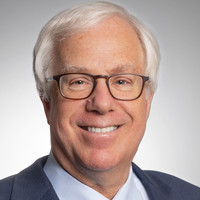In March 1999, hundreds of human rights activists from around the world gathered in a hall in Geneva, Switzerland, to meet America's three principal representatives to the United Nations Human Rights Commission at its annual session to spotlight human rights violations. They were in Geneva to prod governments to replace rhetoric with responsibility, and years of knocking their heads against walls had left them hardened but still hopeful. They crowded into the hall to take the measure of the United States, which has long convinced itself of its own relative rectitude, feeling entitled to lecture other governments on how to conduct themselves. And they harbored the same complicated mixture of admiration and resentment that the name "America" has triggered across the globe since the end of World War II, with the ratio of one to the other prone to fluctuation based on current events and the nature of national U.S. leadership at that given moment.
The three representatives reflected America's diversity and its vast potential for doing good. Harold Hongju Koh, the son of Korean immigrants, was our assistant secretary of state for the Bureau of Democracy, Human Rights and Labor and was a prominent human rights advocate before assuming that post. Indeed, before joining the United States government, Koh had litigated against it, fighting on behalf of Haitian refugees interned at Guantanamo. George Moose, our ambassador to the United Nations organizations in Geneva, was an Africa expert who had served in significant diplomatic positions in Republican and Democratic administrations alike. Nancy Rubin, our ambassador to the commission, had spent decades advocating for women's rights.
The three weren't merely America's face but, from the perspective of those convinced that America can promote decency abroad, its soul. The excited buzz when the event ended left the United States delegation to the commission emotional — and proud.
Those present that day saw an America that people everywhere yearn to see: a country that means what it says about democracy and the rule of law; that conducts itself accordingly; that models compassion; and that strives, however imperfectly, to do the right thing.
That is not what anyone has seen in President Donald Trump's America, and President-elect Joe Biden and the foreign policy team he introduced last week know it. It is why Biden purposefully selected "America is back" as the organizing message for last week's roll-out. The world wants to know whether the desecration of American values that the Trump presidency wrought was a temporary spasm in the country's history or a way station on a permanent downward spiral.
Biden's secretary of state nominee, Antony Blinken, captured our complex challenge abroad perfectly, emphasizing that we need to find a way to simultaneously display "humility and confidence" in reengineering our relationships with the rest of the world. The personal story Blinken chose to illustrate what the United States is capable of meaning was likewise perfect. As a small boy, Blinken's stepfather escaped from a Nazi death march in the Holocaust's last days and hid in the Bavarian woods. He saw a tank with American markings on it. "He ran to the tank," Blinken recounted in accepting the nomination as our chief diplomat last week. "The hatch opened. An African American G.I. looked down at him. He fell to his knees and said the only three words he knew in English that his mother had taught him: 'God Bless America.' The G.I. lifted him into the tank, into America, into freedom."
"American democracy," historian Michael Beschloss remarked last week, "just went through a near-death experience." Our new president will face challenges as grave as those faced by former President Abraham Lincoln in 1861 and former President Franklin Roosevelt in 1933. But he has already set about confronting them with discipline and good judgment, constructing an administration with individuals who keenly appreciate what America aspires to be and who seem determined to help the country claw its way back.
Jeff Robbins, a former assistant United States attorney and United States delegate to the United Nations Human Rights Council in Geneva, was chief counsel for the minority of the United States Senate Permanent Subcommittee on Investigations. An attorney specializing in the First Amendment, he is a longtime columnist for the Boston Herald, writing on politics, national security, human rights and the Mideast. To find out more about Jeff Robbins, and read features by other Creators Syndicate writers and cartoonists, visit the Creators Syndicate website at www.creators.com.
Photo credit: padrinan at Pixabay






View Comments